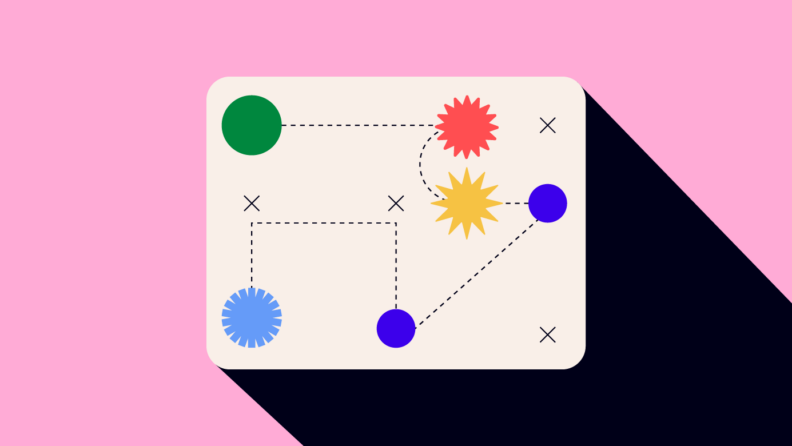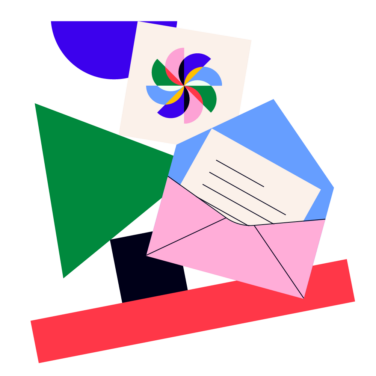In the transformative world of digital marketing, businesses need to stay at the cutting edge to meet rising customer expectations. One of the most exciting trends is the use of artificial intelligence (AI) in marketing automation.
According to Statista, more than 80% of marketers worldwide integrate some form of AI into their online marketing activities. By leveraging AI, marketing teams are able to streamline repetitive tasks, provide real-time customer engagement, and gain insights into customer behavior. With the help of AI marketing tools like ChatGPT, businesses are revolutionizing their approach to their marketing campaigns.
In this article, I’ll explain how the intersection of AI and marketing is the key to unlocking unprecedented opportunities for growth and success. By leveraging AI-powered marketing automation, you can streamline your workflows, personalize customer experiences, and drive unprecedented engagement and conversion rates.
I'm confident that, with the right approach, AI automation can change the game for your marketing efforts.
How AI Is Driving Marketing Automation
AI is powering marketing automation in groundbreaking ways. It uses deep learning and natural language processing (NLP) to analyze vast amounts of customer data, identify patterns, and predict future trends. AI can automate marketing tasks like social media posts, email marketing, and content creation, improving campaign efficiency and delivering personalized content. From lead scoring and nurturing to email automation and channel optimization, AI enhances the benefits of marketing software, making it more intelligent and effective.
Why Businesses Should Use AI in Marketing Automation
Adding AI when you implement marketing automation offers several key advantages
- It delivers personalized experiences to the target audience at scale, improving customer engagement and loyalty.
- It can help marketing teams make data-driven decisions and optimize their SEO and pricing strategies.
- The predictive analytics provided by AI allow marketers to anticipate customer behavior, which in turn enhances customer journey planning.
6 Ways To Use AI in Marketing Automation
Incorporating AI into marketing automation can take several forms. Let's explore some key areas where AI can make a significant impact.
1. Personalization
AI algorithms analyze user behavior, demographic data, and other information to deliver personalized content and offers to each customer. Leveraging AI in this way improves the user experience, resulting in higher engagement and conversion rates. This approach can be particularly effective in ecommerce settings, where real-time personalization can boost sales.
2. Email automation
AI can optimize email marketing by determining the best time to send emails, crafting personalized email content, and segmenting email lists based on user behavior. AI-powered email automation results in more effective campaigns, better open and click-through rates, and improved lead generation.
3. Lead scoring and nurturing
AI can be used to automate CRM workflows, scoring leads based on historical data and behavioral signals. This helps businesses focus their efforts on high-potential customers. AI-driven nurturing campaigns deliver relevant content to prospects at each stage of their journey, improving the chances of conversion.
4. Predictive analytics
Predictive analytics powered by AI can forecast customer behavior based on historical data and current trends. This helps businesses anticipate future needs, informing everything from content marketing to pricing strategy.
5. Channel optimization
AI's use extends to determining the most effective marketing channels, like social media, or email, or SMS based on where your audience spends most of their time and which channels deliver the highest ROI. This makes your digital and inbound marketing campaigns more focused and successful.
6. Customer service and communication
AI chatbots and virtual assistants provide efficient customer support by handling routine inquiries and delivering consistent messaging across channels. They can also generate web pages and landing pages, further enhancing customer experience.
How to Implement AI in Marketing Automation: A Practical Guide
Now that we've covered the why and the what, let's dive into the how. In this section, we'll walk you through a practical guide on implementing AI in your marketing automation using some popular software tools as examples.
Step 1: Identify your needs and goals
The first step in implementing AI in marketing automation is to clearly define your needs and goals. Whether it's improving customer engagement, increasing conversion rates, or optimizing your social media marketing, having clear objectives will guide your strategy and tool selection.
Step 2: Choose your AI marketing tools
Several marketing automation software options are available, each with its own unique features and capabilities. Some popular options include:
- HubSpot: A comprehensive platform offering AI-powered marketing automation tools such as email automation, CRM, social media management, and SEO optimization. HubSpot's workflows help automate repetitive tasks and nurture leads efficiently.
- Mailchimp: Known for its email marketing capabilities, Mailchimp also provides AI-powered predictive analytics, content creation templates, and customer segmentation.
- Adobe Campaign: This tool offers real-time personalized messaging across different channels including email, SMS marketing software, and social media. It also uses AI for predictive analytics to guide your marketing strategy.
- ChatGPT: Powered by OpenAI, ChatGPT can help with content creation, crafting personalized responses in real-time, making it a great tool for customer service and communication.
Choose a tool that best aligns with your goals, has features that meet your needs, and fits within your budget.
Step 3: Setup and integration
Once you've selected your tools, set them up according to your specific workflows. Most tools offer integration with existing apps, CRMs, social media platforms, and other marketing channels. For example, HubSpot can be easily integrated with most CRM software, enhancing your lead nurturing process.
Step 4: Use AI to automate tasks
Start using AI to automate repetitive tasks such as email marketing, social media posts, and customer support. For instance, leverage ChatGPT to automate customer inquiries or use HubSpot's AI capabilities for email automation and lead scoring.
Step 5: Monitor and optimize
Finally, monitor your metrics to assess the effectiveness of your AI marketing automation. All tools provide detailed analytics, which you can use to continuously improve your campaigns. For instance, if your AI-driven email campaign is not achieving the desired open rates, you might need to tweak your subject lines or sending times.
By following these steps, businesses can effectively implement AI in marketing automation. Remember that AI is a tool to aid your marketing efforts, and its effectiveness largely depends on the strategy guiding it. Keep refining your approach based on data and feedback, and you'll be well on your way to reaping the benefits of AI-powered marketing automation.
Leverage AI Marketing Automation For Success
Implementing AI marketing automation successfully requires a strategic approach. Start by identifying use cases in your marketing process that can benefit from automation, like social media marketing or email marketing.
Experiment with different marketing automation tools and AI marketing software like HubSpot or Salesforce, continuously monitor your metrics and optimize your strategies based on the results. With the right use of AI in marketing automation, businesses can significantly enhance their marketing efforts and deliver superior customer experiences.
If you enjoyed this article, check out our related content such as How to Use Machine Learning in Marketing Automation. For more insights and strategies to elevate your marketing game, be sure to subscribe to The CMO newsletter.


